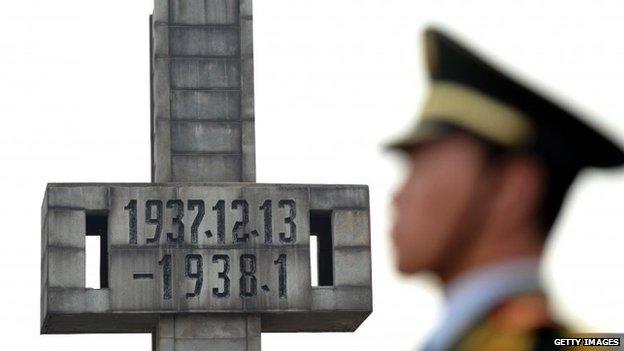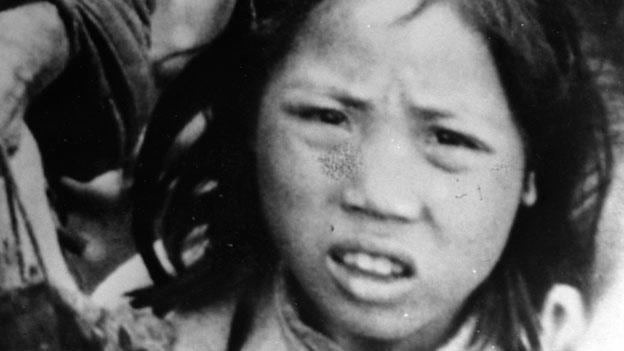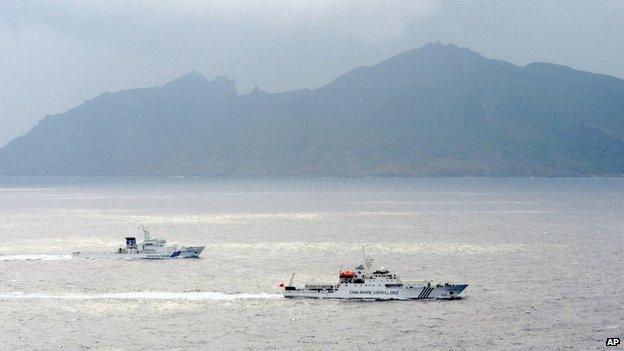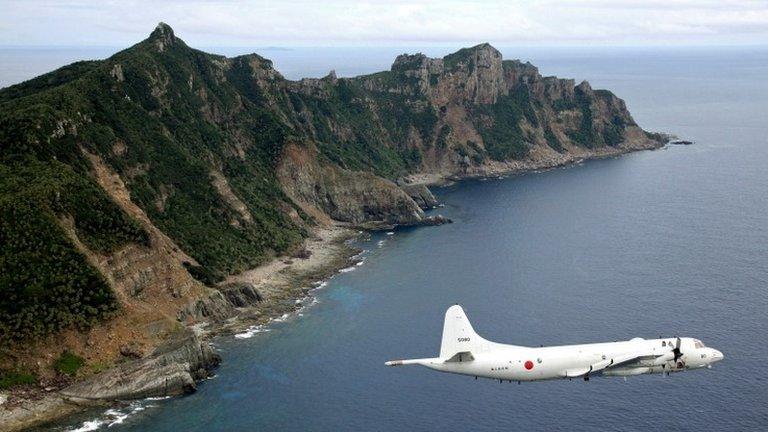China mulls holidays marking Japanese defeat and Nanjing massacre
- Published

Last year China marked the 76th anniversary of the Nanjing massacre
China is considering two new national holidays to mark the war against Japan in the 1930s and 40s, amid rising anti-Japanese sentiment.
The plan, now submitted to parliament, is to mark the formal surrender of Japan in 1945 and the anniversary of the Nanjing massacre in 1937.
China says some 300,000 civilians were massacred in the city after its occupation by Japanese troops.
Japanese nationalists dispute the Chinese version.
Nationalist sentiment has been rising in China, fanned by a dispute with Japan over uninhabited islands in the East China Sea.
According to the draft laws now before the National People's Congress, 3 September would be "Victory Day of the Chinese People's War of Resistance Against Japanese Aggression", the official Xinhua news agency said.
In addition, 13 December would be a "national memorial day to commemorate those killed by Japanese aggressors during the Nanjing massacre", Xinhua reported.
Japanese forces invaded and occupied Manchuria in northern China in 1931.
A wider war between the two countries began in 1937 and ended with Japan's surrender in August 1945, days after the US dropped atomic bombs on Hiroshima and Nagasaki.
Ties between China and Japan have recently been strained by the territorial row over a group of islands, known as the Senkaku islands in Japan and the Diaoyu islands in China.
The islands - controlled by Japan - are close to important shipping lanes, offer rich fishing grounds and lie near potential oil and gas reserves.
- Published13 February 2014

- Published10 November 2014

- Published28 January 2014
